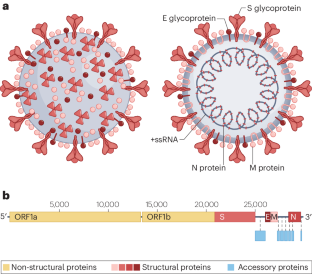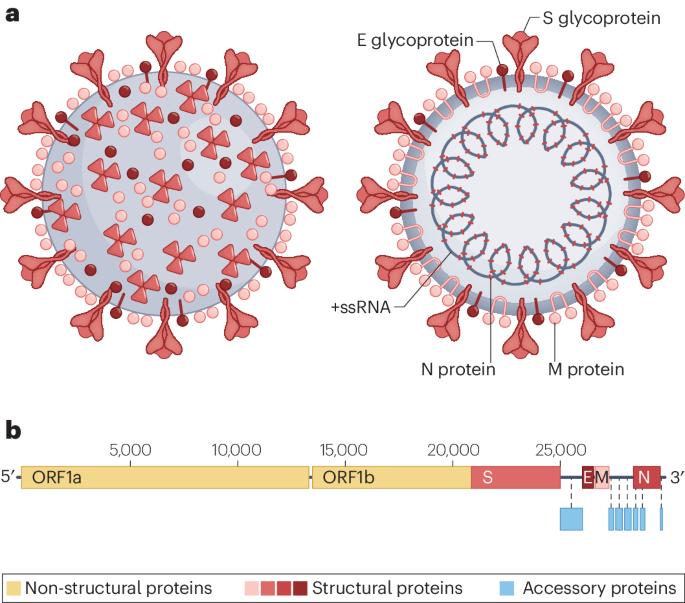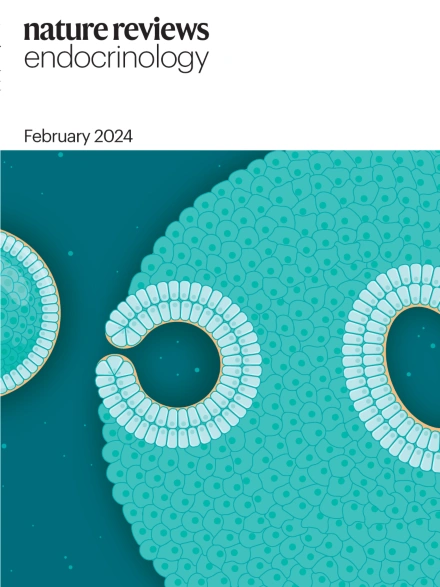The relationship between SARS-CoV-2 infection and type 1 diabetes mellitus
IF 40
1区 医学
Q1 ENDOCRINOLOGY & METABOLISM
引用次数: 0
Abstract
Environmental factors, in particular viral infections, are thought to have an important role in the pathogenesis of type 1 diabetes mellitus (T1DM). The COVID-19 pandemic reinforced this hypothesis as many observational studies and meta-analyses reported a notable increase in the incidence of T1DM following infection with SARS-CoV-2 as well as an association between SARS-CoV-2 infection and the risk of new-onset T1DM. Experimental evidence suggests that human β-cells express SARS-CoV-2 receptors and that SARS-CoV-2 can infect and replicate in β-cells, resulting in structural or functional alterations of these cells. These alterations include reduced numbers of insulin-secreting granules, impaired pro-insulin (or insulin) secretion, and β-cell transdifferentiation or dedifferentiation. The inflammatory environment induced by local or systemic SARS-CoV-2 infection might result in a set of signals (such as pro-inflammatory cytokines) that lead to β-cell alteration or apoptosis or to a bystander activation of T cells and disruption of peripheral tolerance that triggers autoimmunity. Other mechanisms, such as viral persistence, molecular mimicry and activation of endogenous human retroviruses, are also likely to be involved in the pathogenesis of T1DM following SARS-CoV-2 infection. This Review addresses the issue of the involvement of SARS-CoV-2 infection in the development of T1DM using evidence from epidemiological, clinical and experimental studies. Many studies identified an increase in the incidence of type 1 diabetes mellitus (T1DM) during the COVID-19 pandemic, but other reports do not support this association. This Review addresses the issue of the involvement of SARS-CoV-2 infection in the development of T1DM using evidence from epidemiological, clinical and experimental studies.


SARS-CoV-2 感染与 1 型糖尿病之间的关系
环境因素,尤其是病毒感染,被认为在 1 型糖尿病(T1DM)的发病机制中起着重要作用。COVID-19 大流行强化了这一假设,因为许多观察性研究和荟萃分析报告称,感染 SARS-CoV-2 后,T1DM 的发病率明显增加,而且 SARS-CoV-2 感染与新发 T1DM 的风险之间存在关联。实验证据表明,人的β细胞表达SARS-CoV-2受体,SARS-CoV-2可感染β细胞并在其中复制,导致这些细胞的结构或功能发生改变。这些改变包括胰岛素分泌颗粒数量减少、促胰岛素(或胰岛素)分泌受损、β 细胞发生转分化或去分化。局部或全身感染 SARS-CoV-2 后诱发的炎症环境可能会产生一系列信号(如促炎细胞因子),导致 β 细胞改变或凋亡,或导致 T 细胞的旁观者激活和外周耐受性破坏,从而引发自身免疫。其他机制,如病毒持续存在、分子模仿和激活内源性人类逆转录病毒,也可能参与了 SARS-CoV-2 感染后 T1DM 的发病机制。本综述利用流行病学、临床和实验研究的证据,探讨了 SARS-CoV-2 感染参与 T1DM 发病的问题。
本文章由计算机程序翻译,如有差异,请以英文原文为准。
求助全文
约1分钟内获得全文
求助全文
来源期刊

Nature Reviews Endocrinology
医学-内分泌学与代谢
CiteScore
42.00
自引率
0.70%
发文量
158
审稿时长
6-12 weeks
期刊介绍:
Nature Reviews Endocrinology aspires to be the foremost platform for reviews and commentaries catering to the scientific communities it serves. The journal aims to publish articles characterized by authority, accessibility, and clarity, enhanced with easily understandable figures, tables, and other visual aids. The goal is to offer an unparalleled service to authors, referees, and readers, striving to maximize the usefulness and impact of each article. Nature Reviews Endocrinology publishes Research Highlights, Comments, News & Views, Reviews, Consensus Statements, and Perspectives relevant to researchers and clinicians in the fields of endocrinology and metabolism. Its broad scope ensures that the work it publishes reaches the widest possible audience.
 求助内容:
求助内容: 应助结果提醒方式:
应助结果提醒方式:


